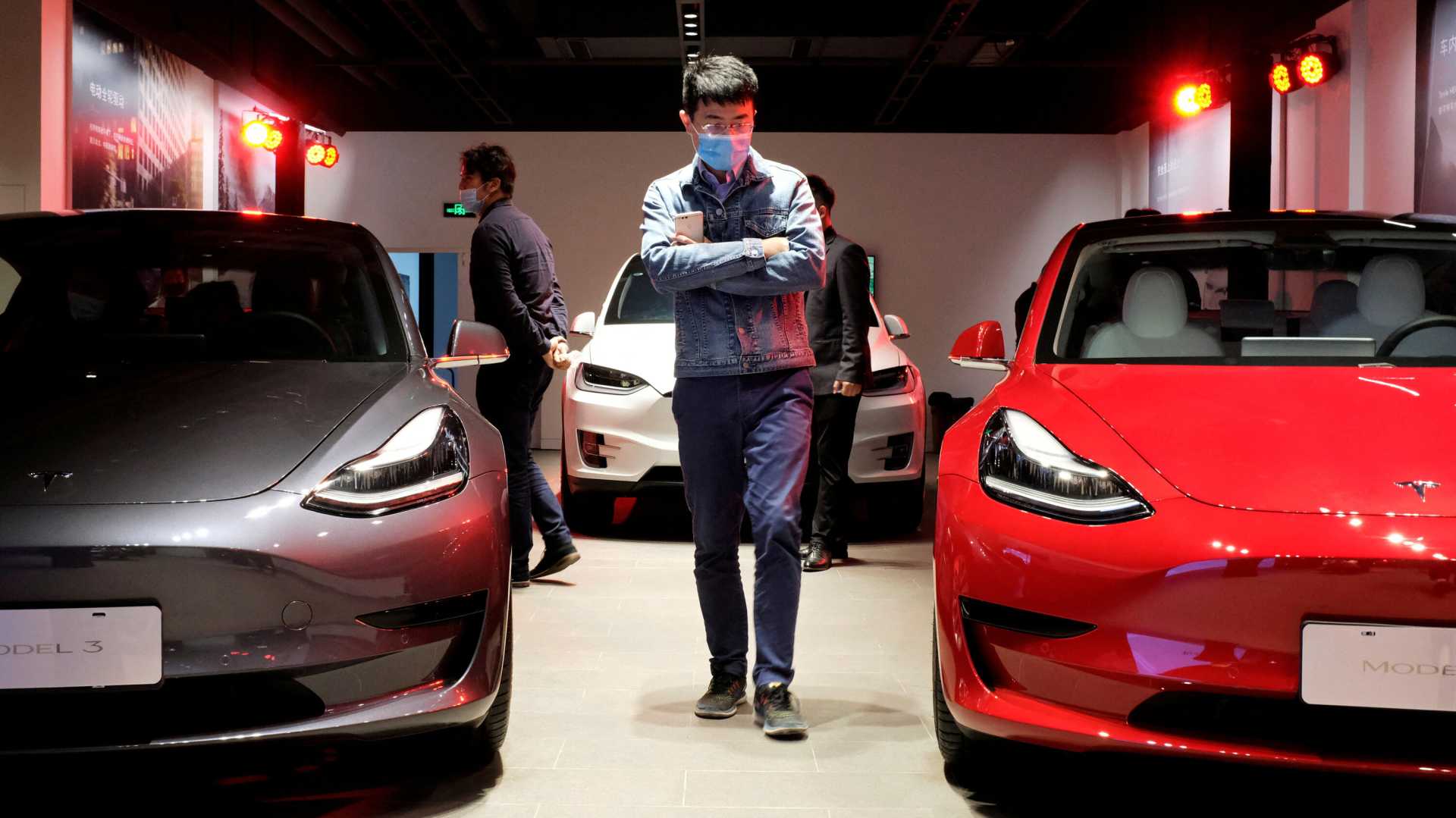Business
Tesla Faces Declining Sales Amid Intensifying Competition in China

BEIJING, China — Tesla, the U.S. electric vehicle manufacturer, reported a significant drop in sales in China during March 2025, selling 78,828 electric vehicles, down 11.5% compared to the same month last year. The data was released by the China Passenger Car Association (CPCA) on Wednesday.
Despite the downturn year-on-year, Tesla’s sales increased dramatically by 156.9%, compared to just 30,688 vehicles sold in February. However, this rebound was overshadowed by fierce competition from local rivals like BYD, which sold 371,419 new energy vehicles in March, marking a 23.1% rise from the previous year, according to CPCA statistics.
The figures highlight the mounting challenges Tesla faces in the Chinese market, which has become saturated with competitors that are rapidly gaining ground. For instance, Geely, which owns brands such as Volvo Cars, reported a 167% increase year-on-year with 119,696 vehicle sales in March.
In response to rising competition, Tesla introduced a revamped Model Y in late February aimed at revitalizing interest among potential customers. The new model, featuring upgraded interiors and additional technology, is expected to help the automaker recover lost market share.
According to analysts at Counterpoint Research, BYD is on track to surpass Tesla as the world’s leading electric vehicle seller this year, commanding a market share of 15.7% compared to Tesla’s 15.3%. Additionally, Tesla’s total vehicle deliveries were reported at 172,754 cars in the first quarter of 2025, a decline of 21.8% year-on-year, the lowest since 2022.
Musk’s decisions amidst these challenges have drawn scrutiny, particularly his involvement with certain governmental policies and the ongoing backlash against his political connections, especially with former President Donald Trump, which have reportedly led to brand deterioration among Tesla’s traditionally liberal consumer base. Ken Mahoney, CEO of Mahoney Asset Management, stated, “We have seen major brand deterioration of Tesla across the entire world essentially. The brand has become far more politicized than any public company’s brand should wish to be.”
As demand for Tesla vehicles begins to cool, analysts predict a decrease in the company’s first-quarter delivery numbers, estimating deliveries could fall below 400,000 for the period. Thomas Martin, a senior portfolio manager, suggested estimates might be optimistic, fearing deliveries could slip as low as 350,000.
Analyst expectations for Tesla’s deliveries have dropped amid concerns related to customer wait times for new models, particularly the refreshed Model Y. Additionally, the unveiling of Tesla’s Cybertruck, despite much anticipation, has faced criticism over its price and design, contributing to decreased interest.
With Tesla’s sales under pressure from external factors including competition and the changing political landscape, the company is also preparing to launch a lower-cost version of the Model Y, which is anticipated to begin production next year in Shanghai. As disruptions in supply chains and increased tariffs threaten the business, the situation remains dynamic.
Tesla’s stock performance has been negatively impacted as well, dropping over 7% earlier in the week and facing a significant decline of 35% since the beginning of 2025. Investors are keenly awaiting the company’s upcoming report on production and delivery numbers.












